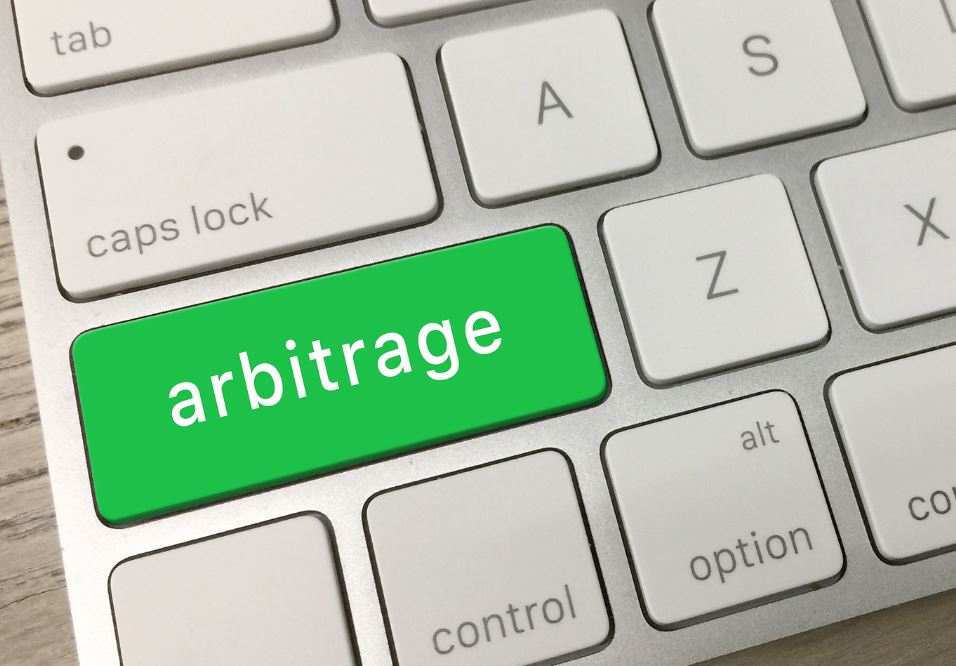What Is Arbitrage and How to Use It?
Introduction to the Topic Arbitrage
No matter whether you have recently decided to start your real estate business or started it a few years ago, you have heard about the term “arbitrage” many times. But do you know what it is, how it works, and how to use it? If not, don’t worry. This article will outline everything that you need to know to understand arbitrage completely. So, continue reading to learn more.
Let’s Explore What Arbitrage: Know All the Facts that Form this Concept
Arbitrage is a financial term that is used when one investment is traded for another that has a higher value. In the world of real estate, this can occur when an investor purchases a property and then sells it immediately for a profit. This can also be done by using a home equity line of credit to expand your passive cash flow portfolio. By doing this, you will be able to increase your earnings without having to do much work! So, you can treat this as a ticket to make more money and grow your portfolio simultaneously.
A Good Arbitrage Example: Explaining the Term “Real Estate Arbitrage” with the Example of a Home Equity Line of Credit
Real estate arbitrage occurs when a real estate investor purchases an investment property and sells it simultaneously at a higher price. In this case, the profit the real estate investor will realize is the difference between the purchase and selling price. You can also use a HELOC to expand one’s passive cash flow portfolio, which is how arbitrage occurs.
By definition, a home equity line of credit, or HELOC (pronounced he-lock), is a loan in which the lender agrees to lend a maximum amount within an agreed period (called a term), where the collateral is the borrower’s equity in their house also known as a 2nd mortgage.
A home equity line of credit is usually open-ended and allows the homeowner to draw on the line of credit as needed over the agreed term. The monthly payments are generally just the interest due on the outstanding balance until the end of the term, when the entire loan amount must be repaid.
Advantages of the Home Equity Line of Credit Concept Offered by Lending Companies in the Real Estate World
A home equity line of credit gives you access to cash as you need it. You can use a home equity line of credit for home improvements, to pay off other debts, or even to make a larger buy.
A home equity line of credit is an attractive alternative to a traditional home equity loan because it gives you the flexibility to borrow only what you need when you need it. And, since your home equity line of credit is secured by your home’s value, you may be able to get a lower interest rate than you would with an unsecured loan.
Another advantage of a home equity line of credit is that you only pay interest on the portion of the line of credit that you use. With a home equity loan, in contrast, you generally have to pay interest on the full amount of the loan even if you’re using only a portion of it.
A home equity line of credit also may give you some important tax advantages. The interest you pay on a home equity loan is usually tax-deductible, whereas the interest paid on other types of loans is not.
To get a home equity line of credit, you’ll need to have home equity—the current market value of your home minus the amount you still owe on your mortgage.
Financial Views of a Home Equity Line Used in Arbitrage Transaction
For example, let’s say your home is worth $300,000, with a remaining mortgage balance of $100,000. In this situation, the bank would allow you to borrow against your $200,000 worth of equity.
In most cases, a bank will allow you to borrow up to 80% of the value of your equity. So, in this instance, 80% of $200,000 is $160,000. The bank will issue you a checkbook which you can use to make purchases.
You can use a HELOC for a lot of reasons, but we advise folks to look at real estate arbitrage and not go buy a boat.
Because of this, the HELOC is a remarkable and probably the best tool for buying real estate investments. You can turn your home’s equity and place it into cash-flowing rental properties. The home equity loan is a revolving line of credit (like a credit card). Thus, this is a repeatable strategy that you can use to expand your passive portfolio. You could also use your home equity loan to complete a flip, and thus the strategy is very versatile.
FLIP EXAMPLE
- SFH (single family home) buy = 100k
- ARV (after rehab value) = 165k
- Renovation Cost = 30k
- Holding Costs = 15k
With the example above (which is hard to find), you could make close to 20k (before tax). This is an example where you use open equity with a home equity loan to fund a flip opportunity. Now, flips are not for the faint of heart, so please ensure your rehab numbers and contingency percentages are correct, as we have seen many flips go sideways even with solid due diligence.
Also, to note, that real estate flips in a changing market can be very unpredictable, which could mean you would lose money if the market changes, or you can make a lot more money if you get in and out at the right time. The reason for the emphasis here is the market is changing now in 2022, thus, flips will need to have a higher margin in case the market drops and are flooded with inventory. So, an in-depth market review is necessary.
Another way to use open equity is with a rental property where you have the ability to pay off the home equity loan and own 100% of an asset which can be very profitable, but it can also lose value. So please ensure you have a solid exit strategy in place that ensures your investment is protected. At the same time, it provides you with the opportunity to get out of that investment at any time if needed.
For example, if your HELOC rate is 6% (and you can deliver a CAP rate (NOI divided into Purchase Price) of 9%, you essentially are 3% on the upside. In this case, you would utilize leverage capabilities (HELOC) or open equity to purchase passive cash flow. Always, side on the side of caution because HELOC rates can adjust with the market.
The numbers below are just examples as rents vary by region, and there could be a lot of delayed maintenance needed.
CAP Rate Example with Arbitrage
- Purchase Price = 85k
- Money in the Deal (20% HELOC funds – Arbitrage) = 17k
- Rent = $1,100
- Taxes = $150
- Insurance = $65
- Management (10%) = $110
- Maintenance (8%) = $88
- Vacancy (8%) = $88
- Yearly Rents (1,100 * 12) = $13,200
- Total Expenses Above (150+65+110+88+88) = $6,012
- Rents (13,200) – Total Expenses (6,012) = $7,188 (NOI; Net Operating Income)
- NOI (7,188) / Purchase Price (85k) = 8.5% (cap rate)
Review the Home Equity Loan Option for a Flip
Here’s how it works: let’s say you find a property that you think you can sell for a higher price. You can use a home equity line of credit to purchase the property outright. Then, you list the property for sale and wait for a buyer. Once you find a buyer, you sell the property and pocket the difference between the purchase and selling price.
Not only is real estate arbitrage a great way to make money, but it’s also a great way to grow your portfolio quickly. By using home equity lines of credit, you can buy multiple properties and sell them for a profit, all without having to put any money down.
If you’re looking for a passive income strategy that can help you make money and grow your portfolio quickly, real estate arbitrage is a great option. Home equity lines of credit make it easy to get started, and you can make a substantial profit with each flip. So, what are you waiting for? Start looking for your next investment property today!
What are the Risks of Home Equity and Real Estate Arbitrage? Explore the Risk Arbitrage to Know the Arbitrage Opportunity

Second, home equity lines of credit usually have high-interest rates, so you’ll need to be sure that you can sell the property quickly and for a higher price to make a profit. With the rise in rates (it’s not fixed unless you pay a fee) this could be a losing proposition all together so don’t keep large HELOC balances unless your investments return is so high that the upside margin makes sense.
Lastly, if the market crashes and home prices drop, you could end up owing more on the property than it’s worth. While there are some risks to be aware of, real estate arbitrage is still a great way to make money and grow your portfolio on the same page. Just be sure to do your research and understand the risks before you get started. **
FAQ
What is an Example of Arbitrage?
Arbitrage example is selling a good at a lesser price and selling it at a higher price for profits. In real estate, it means buying a property at a lower rate than its right price and selling it at a higher price immediately.
Is Arbitrage Legal?
Arbitrage trading is not illegal. It is very much an on-trend and encouraged. Arbitrage is used with real estate, stock market, and just by any business leveraging debt to expand.
What is Another Word for Arbitrage?
Arbitrage is also known as program trading. It is a kind of investment in the property to get a higher return quickly.
What are Arbitrageurs in Finance?
Arbitrageurs indicate investors who take advantage of the market. They help to minimize the inefficiencies of a market.
Final Thoughts
It’s good to follow the trend and keep a HELOC (home equity line of credit) as liquid as possible and use it as a short-term investment vehicle since the rate can vary. You could always refinance your primary mortgage and second mortgage to lock in the rate, but you’ll lose any amortization periods you would have gained on your primary mortgage, so keep that in mind.
A home equity line of credit is a great tool to have in your real estate investing arsenal. It’s a flexible and relatively low-cost way to finance the purchase of an investment property. And, if used wisely, it can offer some attractive tax advantages.
Just be sure to understand the risks involved before you get started, and always consult with a financial advisor to ensure that real estate arbitrage is right for you.
Looking to sell your home of have questions on the topic you can visit us at https://buyshouses.co/contact-us/






